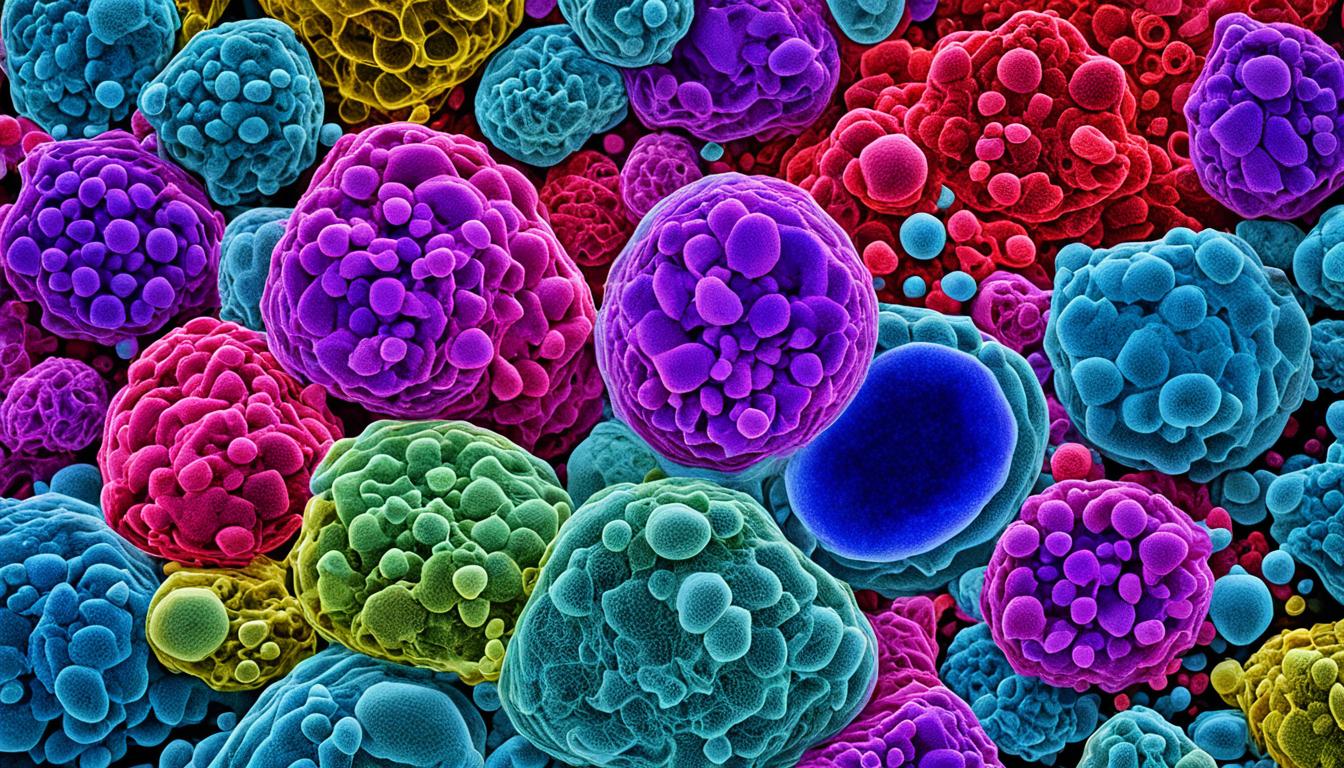Multisystem inflammatory syndrome in children (MIS-C) is a rare but serious condition. It affects kids with a past SARS-CoV-2 infection. This virus is what causes COVID-19. MIS-C shows up 2-6 weeks after the first infection. It can harm the heart, lungs, and more. Thankfully, most children get better with care, but it can be a big risk.
Parents, caregivers, and healthcare workers need to know about MIS-C. Recognizing it early and starting treatment fast is crucial. This can help kids get better sooner and avoid serious problems.
Key Takeaways:
- MIS-C is a rare condition that occurs in children who have been infected with the SARS-CoV-2 virus.
- It can affect multiple organ systems in the body and can be serious or life-threatening.
- Common symptoms of MIS-C include fever, inflammation throughout the body, heart problems, and gastrointestinal issues.
- Early diagnosis is crucial for effective treatment and prevention of complications.
- The treatment for MIS-C involves anti-inflammatory drugs and addressing the symptoms based on the affected organs.
Symptoms and Diagnosis of MIS-C
Children with MIS-C may have various symptoms. These could be fever, body-wide inflammation, and heart issues. Others include red eyes, swollen lips, and a big tongue. They might also have swollen hands and feet, stomach ache, and either vomit or have diarrhea. Blood clotting problems and shock are also signs. It’s worth noting that not every child shows all of these symptoms.
To diagnose MIS-C, doctors look at several things. They check if the child recently saw someone with COVID-19. They consider a fever that sticks around for more than a day. Plus, signs of whole-body inflammation matter. The child must also have at least two common MIS-C symptoms.
Getting a quick and accurate MIS-C diagnosis is very important. Doctors are key in spotting MIS-C and doing the right tests to confirm it. With a fast diagnosis, doctors can begin the right treatments. This leads to better outcomes for the kids who have MIS-C.
| Symptoms | Details |
|---|---|
| Fever | Presence of high body temperature for an extended period |
| Systemic inflammation | Inflammation throughout the body affecting multiple organ systems |
| Heart problems | Cardiac complications, such as myocarditis or arrhythmias |
| Red eyes | Conjunctivitis or eye inflammation |
| Swollen lips and tongue | Edema and inflammation of the lips and tongue |
| Swollen hands and feet | Edema and swelling in the hands and feet |
| Abdominal pain | Discomfort or pain in the abdominal region |
| Vomiting or diarrhea | GI symptoms such as nausea, vomiting, or diarrhea |
| Blood clotting issues | Abnormal clotting or bleeding tendency |
| Shock | Signs of circulatory collapse and inadequate perfusion |
Treatment and Prevention of MIS-C
The treatment for MIS-C mainly uses anti-inflammatory drugs. These drugs help reduce swelling and control how the immune system reacts. Doctors select these drugs based on each child’s condition.
If the disease is severe, kids might need to go to a Pediatric Intensive Care Unit (PICU). This is for very close care and to watch over any complications. It lets doctors and nurses quickly help if more serious issues appear.
Preventing MIS-C is also really important. Right now, there isn’t a special shot or medicine for it. But, doing what experts recommend can lower the chances of kids getting COVID-19 and then MIS-C. This includes washing hands often, wearing a mask, staying far from others, and not going to big events.
Recognizing MIS-C early and getting help fast makes a big difference. If you think your child might have it, don’t wait. Call the doctor or go to the hospital right away. Following their advice is key to helping your child get better.

